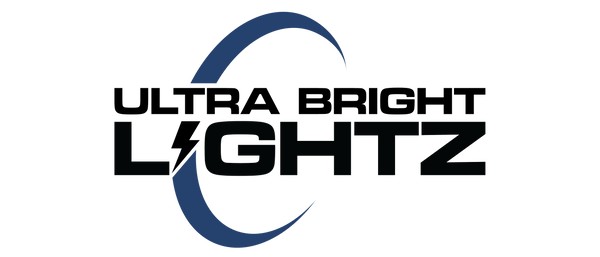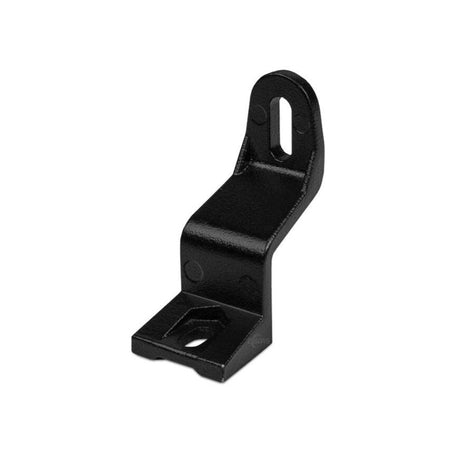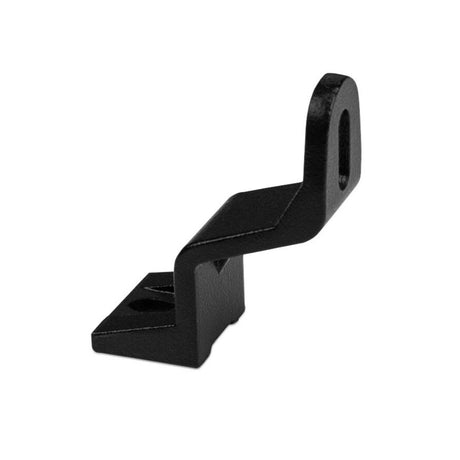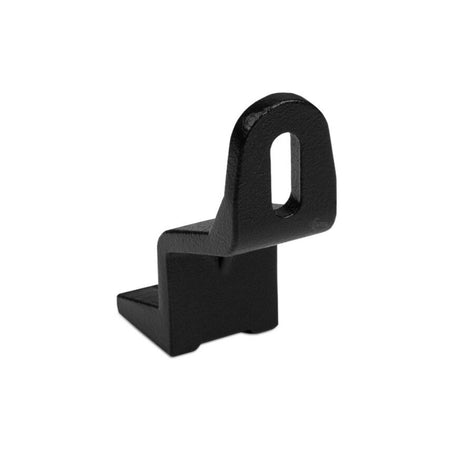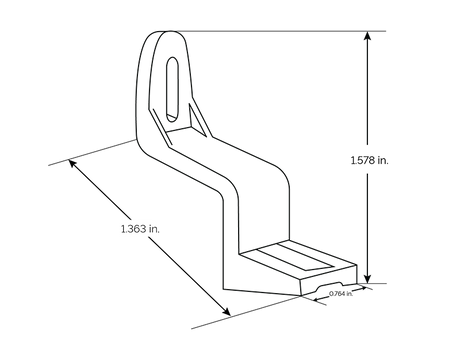Upgrade your interior lighting with sleek, energy-efficient recessed lights that combine powerful illumination with minimalist design. Whether you're renovating a kitchen, creating ambient living room lighting, or upgrading your entire home, modern LED recessed lighting offers superior brightness, optimal energy efficiency, and clean architectural aesthetics.
Browse Our Collection of Recessed Lights
Complete Guide to Recessed Lighting Solutions
Transform your space with professionally designed recessed lighting that combines form and function. Modern LED recessed lights revolutionize how we illuminate rooms, offering unprecedented control over brightness, color temperature, and energy efficiency. From kitchens to living rooms, proper recessed lighting installation creates the perfect balance of task and ambient lighting while maintaining clean ceiling lines.
Understanding Recessed Light Components:
- Housing Types: Choose between new construction housings for open ceilings or remodel housings for existing spaces
- Trim Styles: Baffle trims reduce glare, reflector trims maximize brightness, adjustable trims target specific areas
- LED Options: Modern 4-inch, 5-inch, and 6-inch LED housings deliver superior efficiency
- Smart Controls: WiFi-enabled fixtures offer app control and automation
- IC Ratings: Insulation contact rated fixtures ensure safety in covered spaces
- Moisture Resistance: Wet-location rated fixtures for bathrooms and outdoor areas
Successful recessed lighting design starts with understanding your space's specific requirements. For living areas, one light per 6-8 square feet provides optimal general illumination, while task areas like kitchens may require one light per 4-6 square feet. Strategic placement near walls creates beautiful wall-washing effects that enhance room dimensions.
Essential Installation Planning:
- Calculate Total Fixtures: Measure room square footage and divide by coverage area
- Determine Spacing: Position lights 24-36 inches from walls for optimal wall-washing
- Check Ceiling Structure: Locate joists and electrical access points
- Verify Electrical Load: Ensure circuit capacity supports planned fixtures
- Consider Insulation: Select IC-rated housings for insulated ceilings
- Plan for Controls: Map dimmer locations and smart integration needs
Modern recessed lighting combines advanced LED technology with thoughtful design principles to create perfectly illuminated spaces. Whether you're renovating a kitchen, upgrading a bathroom, or designing a new home, proper planning ensures optimal results. Consider factors like ceiling height, room purpose, and existing natural light when designing your recessed lighting layout.
Room-by-Room Installation Guide
Kitchen Lighting Design:
- Center fixtures over walkways (24-30 inches apart)
- Task lighting above countertops (12-18 inches from cabinets)
- Accent lighting for islands and dining areas
- 5-6 inch LED housings for maximum coverage
- Dimmable options for atmosphere control
- IC-rated fixtures above cabinets
Professional kitchen lighting requires careful placement of 4-inch and 6-inch recessed lights to eliminate shadows on work surfaces while providing adequate ambient illumination.
Living Room Configuration:
- Wall-wash lighting (30 inches from walls)
- Seating area illumination (centered over furniture)
- Adjustable trims for artwork
- Entertainment area considerations
- Architectural feature highlighting
- Multiple control zones for flexibility
Bathroom Installation Requirements:
- Wet-location rated housings
- Shower-specific fixtures (UL listed)
- Vanity area placement
- Steam-resistant trims
- GFCI circuit protection
- Proper ventilation spacing
Smart Technology Integration
Advanced Control Features:
- WiFi-enabled fixtures
- Mobile app control
- Voice command compatibility
- Automated scheduling
- Color temperature adjustment
- Energy consumption monitoring
Modern recessed lighting systems offer unprecedented control through smart home integration, allowing precise management of ambient light levels and energy usage.
LED Technology & Energy Efficiency
Today's LED recessed fixtures deliver superior performance while reducing energy costs:
Performance Benefits:
- 75% less energy consumption
- 50,000+ hour lifespan
- Instant-on capability
- Full dimming range
- Consistent color rendering
- Minimal heat output
Maintenance & Care Guidelines
Regular maintenance of recessed lighting ensures optimal performance and longevity. Professional inspection annually helps identify potential issues before they affect fixture operation or safety. Understanding basic maintenance requirements protects your investment while maintaining ideal illumination levels.
Essential Maintenance Tasks:
- Clean trim and lenses quarterly
- Check dimmer functionality monthly
- Inspect moisture seals in wet locations
- Test GFCI protection circuits
- Monitor color consistency
- Verify smart control connections
LED recessed lights typically require minimal maintenance compared to traditional fixtures, but regular attention extends their lifespan and maintains efficiency.
Troubleshooting Common Issues
Even well-maintained recessed lights may occasionally experience operational issues. Most problems relate to either electrical connections or fixture components.
Common Problems & Solutions:
- Flickering: Check dimmer compatibility
- Uneven Brightness: Verify voltage consistency
- Smart Control Issues: Reset network connections
- Moisture Problems: Inspect trim seals
- Color Shifting: Update fixture firmware
- Dead Zones: Evaluate circuit loading
Safety Considerations
Professional installation and proper maintenance ensure safe operation of recessed lighting systems:
Critical Safety Factors:
- Proper IC-rating for insulated spaces
- Correct circuit loading calculations
- GFCI protection in wet areas
- Adequate ventilation spacing
- Fire barrier compliance
- Code-compliant wiring methods
Understanding local building codes and manufacturer specifications helps create safe, efficient lighting installations that enhance your space while protecting your home.
Advanced Features & Upgrades
Modern recessed lighting technology continues to evolve, offering new capabilities:
Innovation Benefits:
- Color-tunable LED options
- Occupancy sensing
- Daylight harvesting
- Energy usage reporting
- Remote troubleshooting
- Voice control integration
Advanced Recessed Lighting Integration & Control Systems
Modern recessed lighting transforms spaces through sophisticated automation and intelligent control systems. Today's LED fixtures integrate seamlessly with home automation platforms, offering unprecedented control over illumination, energy efficiency, and ambiance creation. From simple dimming to complex scenes, smart recessed lighting enhances daily living while optimizing energy consumption.
Smart Integration Features:
- WiFi-enabled fixture control
- Voice command compatibility
- Mobile app management
- Energy usage monitoring
- Occupancy sensing
- Daylight harvesting
Understanding your control options helps create the perfect lighting environment. Smart recessed lights can automatically adjust based on natural light levels, occupancy patterns, and predetermined schedules. These systems learn from your preferences while maintaining optimal efficiency through advanced LED technology.
Creating Automated Lighting Scenes
Transform your space throughout the day with pre-programmed lighting scenarios. Smart recessed lighting enables sophisticated control over individual fixtures and groups, creating perfect illumination for any activity or mood.
Popular Lighting Scenes:
- Morning Wake-Up: Gradual brightness increase
- Work Mode: Task-optimized illumination
- Entertainment: Dimmed ambient lighting
- Dinner Party: Accent and task light balance
- Evening Relaxation: Warm color temperatures
- Security: Occupied-home simulation
Professional integration ensures your recessed lighting responds perfectly to daily routines while maintaining energy efficiency. Modern control systems offer intuitive interfaces that simplify complex lighting management through user-friendly apps and voice commands.
Energy Management & Optimization
Smart recessed lighting significantly reduces energy consumption through intelligent control:
Energy-Saving Features:
- Automatic dimming based on natural light
- Occupancy-based control
- Schedule optimization
- Power usage reporting
- Peak demand management
- Usage pattern analysis
Sophisticated monitoring systems track energy consumption while suggesting optimization strategies. These insights help refine lighting schedules and scenes for maximum efficiency without sacrificing comfort or functionality.
Future-Proof Installation Planning
Consider these factors when planning smart recessed lighting installations:
Infrastructure Requirements:
- WiFi network coverage
- Control system compatibility
- Electrical capacity
- Expansion capability
- Backup power options
- Remote access security
Color Temperature & Light Quality Guide
Understanding color temperature dramatically impacts the effectiveness of recessed lighting. Modern LED recessed fixtures offer varying color temperatures, from warm 2700K to crisp 5000K daylight options, each serving specific purposes in different spaces.
Color Temperature Applications:
- Warm White (2700-3000K): Living spaces, bedrooms
- Neutral White (3500-4000K): Kitchens, offices
- Daylight (5000-6500K): Task areas, art displays
- Color Tunable: Adjustable for time of day
Professional lighting design considers how color temperature affects mood, productivity, and visual comfort throughout your space.
Return on Investment Analysis
Investing in quality recessed lighting delivers substantial long-term benefits. Modern LED recessed fixtures offer significant advantages over traditional lighting options, with measurable returns through energy savings and increased property value.
Cost-Benefit Factors:
- Energy consumption reduction
- Maintenance cost elimination
- Property value increase
- Extended fixture lifespan
- Reduced cooling costs
- Utility rebate eligibility
Common Mistakes to Avoid with Recessed LED Lighting
Professional recessed lighting installation requires careful planning and execution. Understanding common pitfalls helps ensure optimal results:
Critical Considerations:
- Improper spacing calculations
- Insufficient light levels
- Wrong trim selection
- Incompatible dimmers
- Poor placement planning
- Inadequate vapor barriers
Special Applications & Considerations
Unique Installation Scenarios:
- Sloped Ceilings: Adjustable housings required
- Cathedral Ceilings: Special mounting techniques
- Historic Homes: Retrofit considerations
- Commercial Spaces: Code compliance
- Outdoor Areas: Weather protection
- High Humidity: Proper sealing methods
Building Code Compliance
Understanding local building codes ensures safe, compliant installations:
Code Requirements:
- Electrical specifications
- Fire rating requirements
- Insulation clearances
- Vapor barrier integrity
- Circuit protection
- Emergency lighting
How Many Recessed Lights Do I Need?
Determining the right number of recessed lights for your space involves careful calculation and planning. For most rooms, the general rule suggests one recessed light for every 4-6 square feet of ceiling space. However, this varies significantly based on room purpose, ceiling height, and desired brightness levels.
Basic Calculation Guidelines:
- Living Rooms: One light per 70-80 square feet
- Kitchens: One light per 40-50 square feet
- Bathrooms: One light per 30-40 square feet
- Hallways: Lights spaced 6-8 feet apart
- Task Areas: Additional focused lighting
- Wall Washing: Lights placed 24-30 inches from walls
Recessed Light Spacing and Placement
Understanding how far apart recessed lights should be placed ensures optimal illumination without harsh shadows or dark spots. Most 6-inch LED recessed lights should be placed approximately 6 feet apart, while 4-inch recessed lights work best at 4-foot intervals.
Strategic Placement Tips:
- Kitchen Counter Areas: 24-30 inches from walls
- Living Room Seating: Centered over furniture groups
- Bathroom Vanity: 36-40 inches apart
- Medicine Cabinet: 12-18 inches from cabinet
- Shower Areas: Water-rated fixtures every 4 feet
- Sloped Ceilings: Adjustable trim spacing
Size Selection Guide for Recessed Lighting
Choosing between 4-inch and 6-inch recessed lights impacts both aesthetics and functionality. Modern LED recessed ceiling lights offer various size options for different applications and ceiling heights.
Size Applications:
- 4-inch Recessed Lights:
- Small spaces and bathrooms
- Accent lighting
- Low ceiling applications
- Modern aesthetic preferences
- 6-inch Recessed Lights:
- General room illumination
- Kitchen task lighting
- Higher ceiling installations
- Maximum light output needs
Installation Best Practices
Professional installation of recessed lights requires careful attention to wiring, placement, and safety considerations. Whether installing recessed lights in new construction or retrofitting existing spaces, proper technique ensures optimal performance.
Installation Checklist:
- Verify ceiling joist locations
- Plan electrical circuit requirements
- Install proper housing type
- Seal air gaps around fixtures
- Connect dimmer compatibility
- Test circuit loading
How far should recessed lights be from wall?
Recessed lights should be placed 24-36 inches from walls for optimal wall washing and general room illumination. This spacing prevents harsh shadows and creates even light distribution across vertical surfaces.
How long do recessed lights last?
Modern LED recessed lights typically last 35,000 to 50,000 hours, equivalent to 20-25 years of normal household use. High-quality fixtures can maintain their brightness for even longer with proper installation and ventilation.
How far should recessed lights be from each other?
Recessed lights should be spaced at a distance equal to half the ceiling height for optimal coverage, typically 4-6 feet apart in residential settings. This formula ensures even illumination without creating dark spots or excessive brightness.
